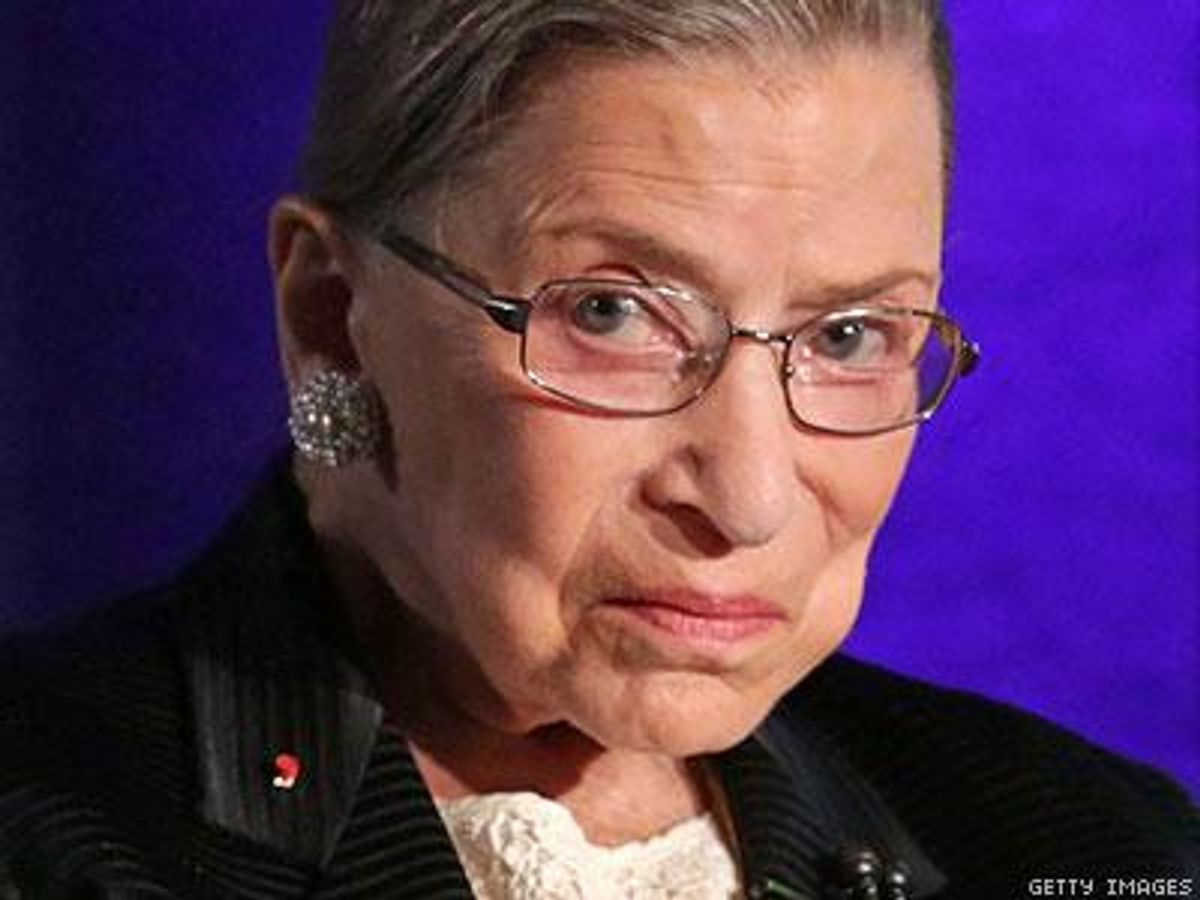On whether the Supreme Court should weigh in on marriage equality, Justice Ruth Bader Ginsburg now says there's "no need for us to rush."
The 81-year-old justice, appointed by President Clinton, told an audience at the University of Minnesota's Law School Tuesday, according to the Associated Press, that the marriage cases currently ready to be considered by the Supreme Court don't present a substantial judicial question, since lower courts are unanimous in ruling in favor of same-sex couples who want to marry.
However, Ginsburg suggested that could change depending on what happens in the U.S. Court of Appeals for the Sixth Circuit, which covers Kentucky, Michigan, Ohio, and Tennessee. If that appeals court arrives at a decision conflicting with the rest, then "there will be some urgency" for the Supreme Court to settle the issue, Ginsburg said, according to the AP.
The Sixth Circuit, based in Cincinnatti, Ohio, last month heard oral arguments from same-sex couples seeking the freedom to marry, and states defending their bans on such freedom in Kentucky, Michigan, Ohio, and Tennessee. Reports from inside the courtroom were mixed on the likely outcome of those cases, noting that while two judges seemed sympathetic to the cases brought by same-sex couples, another seemed skeptical, and all three judges on the panel had tough questions for both sides. The Sixth Circuit could issue its ruling at any point, though it is under no obligation to do so on a particular timeline.
Ginsburg's latest comments seem to hint that the nation's highest court may take a more deferential approach to affirming marriage equality in the immediate future -- a strategy The Advocate explored earlier this month. Even if the court doesn't grant a writ of certiorari -- a judicial review requiring a hearing before the Supreme Court -- to any of the cases now before it, marriage equality could still make its way to tens of millions of Americans whose states would be impacted by pro-equality rulings in federal circuit courts that hold jurisdiction over a number of states.
Ginsburg's comments seem to contradict remarks she made in an August interview with Katie Couric for Yahoo! News, where the justice said the court "will answer that question" about a constitutional right to same-sex marriage. Ginsburg did qualify those remarks by noting that she, of course, cannot predict how the court would rule on an issue that may come before it, but she did imply that the court would not duck its obligation to answer legal questions at the heart of the nationwide debate on marriage equality.
Seven marriage equality cases from five states are awaiting possible review by the Supreme Court. In each of those cases, parties on both sides have asked the Supreme Court to grant review and settle the issue once and for all. However, Ginsburg's comments serve as a reminder that the high court is not obligated to take up any of those cases before it -- although the justices will consider granting review to those cases at their first private conference September 29.
In a related issue, a state judge in Tennessee last month became the first to buck the predominant legal trend and uphold a state's ban on same-sex marriage. Less than a month later, a federal judge in Louisiana followed suit, becoming the first federal judge to declare that a state's ban on marriage equality does not violate the U.S. Constitution. That ruling has been appealed to the Fifth Circuit Court of Appeals, which considers cases from Louisiana, Mississippi, and Texas. Arguments in several cases seeking the freedom to marry in those states have yet to be formally scheduled on the Fifth Circuit's docket.













































































